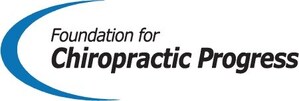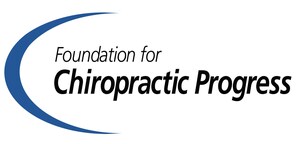SAN JOSE, Calif., Aug. 27, 2019 /PRNewswire/ -- Each September, the Foundation for Chiropractic Progress (F4CP), a not-for-profit organization dedicated to educating the public about the value of chiropractic care, sponsors National Drug-Free Pain Management Awareness Month. The annual designation is an opportunity to raise awareness about the dangers of prescription and over-the-counter (OTC) pain medications, along with the benefits of drug-free options, such as chiropractic care, to safely and effectively relieve acute, subacute and as appropriate, chronic pain.
As National Drug-Free Pain Management Awareness Month approaches, the F4CP highlights a 2019 study by the IQVIA Institute for Human Data Science that found opioid prescription volume dropped by a record-breaking 17% in 2018.
The study notes that prescription opioid volume had increased annually since 1992, reaching its highest level in 2011. Greater public, clinician and health-insurer awareness of prescription opioid dangers, combined with changes to regulations, laws and reimbursements, effectively helped to reduce prescription opioid volume by 4% per year from 2012 through 2016, followed by a 12% drop in 2017, and the historic decline of 17% last year. This drop was especially profound among high-strength opioid formulations, which dropped by 61% since 2011, researchers found.
Similar research studies document that while opioid prescriptions are decreasing, there is wide prescribing variability among states and rural areas. An increased rate of fatal drug overdoses indicates that more providers, health insurers and patients need to be educated and guided toward non-pharmacologic care options to manage pain.
"During National Drug-Free Pain Management Awareness Month, it is important to recognize the accomplishments, as well as continued challenges, around reducing pharmacologic-driven pain management, especially when it comes to opioids," said Sherry McAllister, DC, executive vice president, F4CP, who notes that evidence-based clinical practice guidelines published recently by the American College of Physicians point to spinal manipulation as a recommended first-course option for treating low back pain instead of drug therapies. "When drug-free care is safer, more effective and longer lasting for patients, we must diligently maintain our focus on non-pharmacologic pain management options, such as chiropractic care. We will continue to spread awareness about drug-free care in September, as well as year-round," added Dr. McAllister.
Prescription Reduction Progress
In addition to the prescription-volume study, other recent research shows positive indicators of an industry-wide transition to non-pharmacologic pain management options. They include:
- Ten hospitals in Colorado participated in a six-month pilot project that reduced opioid prescriptions written in the emergency department by 36%. Although in some cases other medications were prescribed instead of opioids, a nurse coordinator quoted in the study says, "staff are encouraged to change the conversation from pain medication only, to alternatives that help patients better understand and cope with their pain."
- From the end of 2013 to the start of 2018, the U.S. Department of Veterans Affairs (VA) reduced its opioid prescription rate by 41%, according to a Government Accountability Office report. Now, less than 10% of VA patients are dispensed opioids.
- In a randomized trial, opioid prescriptions decreased by 10% from providers who received a previous written notification of a patient's fatal opioid overdose.
Also in 2019, the F4CP joined the National Academy of Medicine's Action Collaborative on Countering the U.S. Opioid Epidemic – and is the only chiropractic organization to participate at this time. As a Network Organization, the F4CP is committed to an expanding interdisciplinary and cross-sector network working toward reversing national trends in opioid misuse, abuse and overdose.
Opportunities for Improvement
While the number of prescribed opioids has decreased overall, according to a study released in early 2019, certain types of prescriptions in some states were two and three times higher than others. Meanwhile, a Centers for Disease Control and Prevention study found that between 2014 and 2017, patients in rural counties were 87% more likely to be prescribed opioids. Most concerning, however, is research showing death rates from drug overdoses rose by nearly 20% from 2006 to 2015 among teenagers and young adults ages 15 to 24 (source: Journal of Studies on Alcohol and Drugs).
"Despite remarkable progress in reducing prescription opioid volume, it is clear that in some states and rural areas much more needs to be done," said Dr. McAllister. "As many as eight out of ten individuals with a heroin-use disorder began by using a prescription opioid. It is part of the mission of Drug-Free Pain Management Awareness Month to prevent patients from initiating a pharmacologic-driven pain management program."
Doctors of chiropractic (DCs) are front-line providers for spinal health and well-being, specifically as it relates to the management of back, neck and headache pain. Medical study results show that pain management services provided by DCs may allow patients to use lower or less frequent doses of OTC medications and/or opioids, leading to lower costs and reduced risk of adverse effects.
Similar to other healthcare providers, DCs earn a minimum of seven years of higher education followed by national board exams, state licensure exams and continuing education.
About the Foundation for Chiropractic Progress
A not-for-profit organization, the Foundation for Chiropractic Progress (F4CP) informs and educates the general public about the value of chiropractic care and its role in drug-free pain management. Visit www.f4cp.org; call 866-901-F4CP (3427).
Media contact:
Marcia Rhodes, Amendola Communications for F4CP
[email protected]
480.664.8412 ext. 15
SOURCE Foundation for Chiropractic Progress

Related Links
WANT YOUR COMPANY'S NEWS FEATURED ON PRNEWSWIRE.COM?
Newsrooms &
Influencers
Digital Media
Outlets
Journalists
Opted In






Share this article